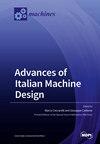研磨加工半导体陶瓷波导中的表下损伤诱发的微波频率偏移
IF 2.1
3区 工程技术
Q3 ENGINEERING, ELECTRICAL & ELECTRONIC
引用次数: 0
摘要
陶瓷波导元件在现代微波半导体系统中起着至关重要的作用。这项工作首次报告了将介电陶瓷磨蚀加工成波导元件时获得的实验结果。这一过程会造成表面下损伤(SSD),导致工作频率偏差,从而降低系统性能。对于工作频率为 10.1 GHz 的基底集成波导 (SIW) 谐振器,深度为 89 um 的 SSD 可导致最大 20.2% 的频率偏移。对于工作频率为 70 GHz 的毫米波元件,相应的频率偏移可增加到 169%。研究了三个带有 SSD 的谐振器 SIW 滤波器,结果表明 SSD 引起的频率偏移可将滤波器的通过率从 95.4% 降至 0%。理论分析揭示了其机理,并对固态分布引起的偏移的极限范围进行了定量估计。此外,还讨论了减少 SSD 偏移的可行方法,如结构设计、加工优化和材料强化。本文章由计算机程序翻译,如有差异,请以英文原文为准。
Microwave Frequency Offset Induced by Subsurface Damage in Abrasive-Machined Semiconductor Ceramic Waveguide
Ceramic waveguide components play a critical role in modern microwave semiconductor systems. For the first time, this work reports experimental results obtained when dielectric ceramics are abrasive-machined into waveguide components. This process will cause subsurface damage (SSD), resulting in a deviation in their working frequency which can degrade the performance of the system. For a substrate-integrated waveguide (SIW) resonator working at 10.1 GHz, SSD with a depth of 89 um can cause a maximum frequency offset of 20.2%. For a mm wave component working at 70 GHz, the corresponding frequency offset could increase to 169%. Three resonator SIW filters with SSD are studied, and the results demonstrate that the frequency offset induced by SSD can reduce the pass rate of the filters from 95.4% to 0%. A theoretical analysis is performed to reveal the mechanism and to offer a quantitative estimation of the limiting range of the offset caused by SSD. Feasible methods for reducing the offset caused by SSD, such as structure design, processing optimization, and material reinforcement, are discussed.
求助全文
通过发布文献求助,成功后即可免费获取论文全文。
去求助
来源期刊

Machines
Multiple-
CiteScore
3.00
自引率
26.90%
发文量
1012
审稿时长
11 weeks
期刊介绍:
Machines (ISSN 2075-1702) is an international, peer-reviewed journal on machinery and engineering. It publishes research articles, reviews, short communications and letters. Our aim is to encourage scientists to publish their experimental and theoretical results in as much detail as possible. There is no restriction on the length of the papers. Full experimental and/or methodical details must be provided. There are, in addition, unique features of this journal: *manuscripts regarding research proposals and research ideas will be particularly welcomed *electronic files or software regarding the full details of the calculation and experimental procedure - if unable to be published in a normal way - can be deposited as supplementary material Subject Areas: applications of automation, systems and control engineering, electronic engineering, mechanical engineering, computer engineering, mechatronics, robotics, industrial design, human-machine-interfaces, mechanical systems, machines and related components, machine vision, history of technology and industrial revolution, turbo machinery, machine diagnostics and prognostics (condition monitoring), machine design.
 求助内容:
求助内容: 应助结果提醒方式:
应助结果提醒方式:


